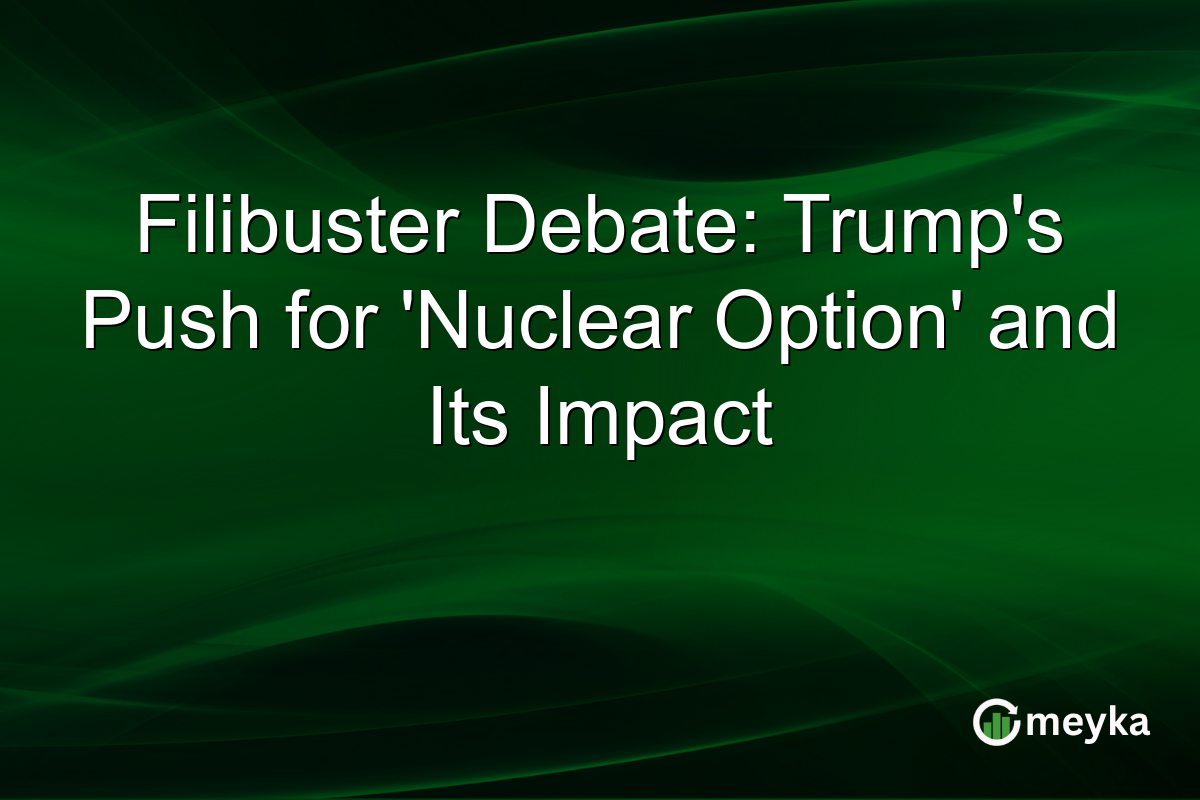Filibuster Debate: Trump’s Push for ‘Nuclear Option’ and Its Impact
The filibuster meaning is a significant topic in American politics, especially as former President Donald Trump pushes for the ‘nuclear option’. This mechanism is pivotal in Senate procedures, often halting controversial legislation. Recently, Trump advocated for the Republican majority to adopt this strategy to end ongoing government shutdowns. Such moves have stirred debate, highlighting the influence of Senate rules on legislative processes and investor confidence.
Continue Reading on Meyka
This article is available in full on our main platform. Get access to complete analysis, stock insights, and more.
Read Full Article →





